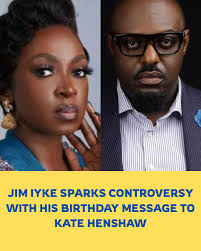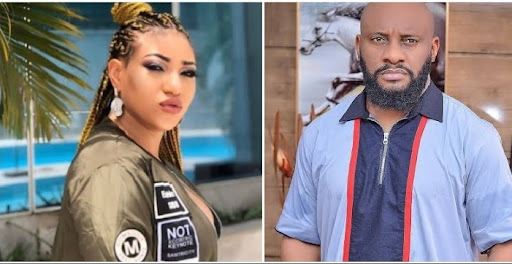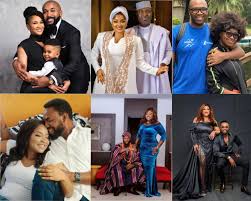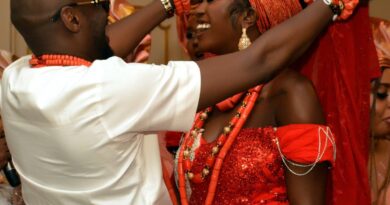Cheating or Acting? This Celebrity Scene Sparks Debate
In the world of entertainment, the line between fiction and reality is often blurry. Actors and celebrities take on roles that sometimes demand emotional intensity, physical closeness, and raw chemistry with co-stars—all in the name of storytelling. But what happens when a scene hits too close to home? When the acting feels a little too real?
That’s the question many Nigerians found themselves asking recently after a steamy on-screen moment between two well-known Nollywood actors went viral. The controversial clip sparked a social media storm and raised heated debates about professionalism, boundaries, and what counts as “cheating” in a relationship—especially when both parties are in the public eye.
So…was it just acting, or was it something more?
The Scene That Started It All
It all began with a movie teaser posted to Instagram and TikTok by a Nollywood production company promoting an upcoming romantic drama. The 30-second clip featured Actor A, a married leading man known for his loyal family image, and Actress B, a popular screen siren with a strong fanbase. In the scene, the two share an intense kiss—lips locked, eyes closed, bodies pressed close, and hands moving in ways that had fans pausing, zooming, and speculating.
The reactions were instant.
- “This doesn’t look like acting. This man is enjoying it too much!”
- “How can a married man do this? If my husband acted like this, we’d have problems.”
- “People don’t understand the difference between acting and reality. Leave them alone!”
And just like that, the video went viral, accumulating millions of views, and birthing the now-popular hashtag: #CheatingOrActing.

Professional Boundaries in Acting
In Hollywood and Bollywood, intimate scenes are often choreographed with precision and professionalism. There are intimacy coordinators, strict agreements, and rehearsals to ensure both consent and believability without crossing personal boundaries.
In Nollywood, however, the conversation is still evolving.
Many actors insist that passion and chemistry are necessary for compelling performances. According to a recent interview with veteran actor Richard Mofe-Damijo (RMD), “If the audience doesn’t believe what you’re doing, they won’t connect. We have to make it look real—but not become real.”
However, critics argue that Nigerian culture still holds firm beliefs about marital loyalty, religious values, and physical boundaries, which makes such performances feel unsettling for the average viewer.
When a married man is seen passionately kissing someone else—even if it’s scripted—it triggers emotional and cultural reactions.
Celebrities Weigh In
The debate quickly escalated, and other celebrities chimed in:
- Toyin Abraham, a renowned actress, commented: “Acting is storytelling, but you must know your limits, especially if you’re married. Some scenes are unnecessary.”
- Jim Iyke, known for playing intense roles, countered: “People who complain don’t understand the job. If the script demands it, I deliver. It’s never personal.”
- Funke Akindele, in a Twitter post, added: “It’s acting, not reality. We are professionals. My husband knows my job comes with roles.”
These differing opinions highlighted a deeper issue: how personal values clash with professional expectations, especially in a society where both religion and morality are significant cultural pillars.

Fan Reactions: Divided and Loud
Public opinion was sharply divided. Some supported the actors, calling the scene a powerful moment of art and professionalism. Others were outraged, particularly targeting Actor A’s marital status.
Here are some notable fan perspectives:
🟢 Supporters Say:
- “It’s a job! Do we attack doctors for playing romantic scenes in movies?”
- “His wife knew he was an actor when she married him. It comes with the territory.”
- “People are too emotional. The same people complaining are binge-watching foreign shows with worse content.”
🔴 Critics Say:
- “There’s acting, and then there’s disrespect. That was full-on cheating.”
- “No married man should act like that. There’s something called dignity.”
- “Nollywood is becoming too sexual. We’re losing our values.”
The viral clip became a cultural mirror—reflecting how Nigerians are grappling with changing ideas of intimacy, art, and marital loyalty in a digital age.

The Spouse’s Response
Just when the dust seemed to be settling, Actor A’s wife broke her silence with a cryptic Instagram story:
“Respect is earned. It’s not acting when it hurts your partner.”
The internet erupted again. Was this a subtle jab? A confirmation that she was upset? Neither she nor Actor A confirmed or denied anything further, but the post added fuel to the fire.
Some fans accused her of being insecure, while others praised her for speaking up. It showed that behind every public moment lies a private emotional reality—and that not everyone sees kissing for a role as harmless.
Cheating: Physical vs Emotional vs Professional
This entire episode raises the question: What really counts as cheating?
Psychologists often describe cheating in three categories:
- Physical – kissing, touching, or sex with someone else.
- Emotional – forming deep connections with someone other than your partner.
- Digital or Intentional – flirting or sexting online with romantic intent.
So where does acting fall?
If both partners agree that it’s strictly work and trust is intact, it might not count as cheating. But in relationships where boundaries are not clearly defined, such scenes can lead to emotional consequences—even if there’s no real attraction.
It all boils down to communication and mutual understanding between partners.
Cultural Context: Nigeria’s Conservative Lens
In many Nigerian homes, modesty and restraint are still prized virtues. Public display of affection, especially in media, is often frowned upon. This explains why kissing scenes in Nigerian movies only recently began to gain acceptance.
While the younger, urban population may embrace modern cinematic trends, many older viewers still view such content as morally questionable. Thus, when Nigerian celebrities push the envelope, it often leads to public backlash—not necessarily because of the content itself, but because of perceived moral betrayal.
Lessons and Conversations Sparked
Beyond the gossip and sensationalism, the #CheatingOrActing debate has opened up meaningful conversations around:
- Marital expectations vs career obligations
- Consent and comfort in performing arts
- Cultural shifts in Nigerian media
- How much is too much on screen?
- Should actors turn down intimate roles once married?
More importantly, it challenges the public to respect the difference between character and actor, and to acknowledge that healthy boundaries differ from couple to couple.
Conclusion: Cheating or Acting?
In the end, the answer to this debate isn’t black and white. For some, it’s clearly acting—part of the job, a tool for storytelling. For others, it crosses emotional lines and disrespects private relationships.
What’s certain is this: as Nollywood grows in sophistication and realism, the industry will continue to challenge cultural norms and personal comfort zones.
Perhaps the better question isn’t just “Was this cheating?” but rather:
“What do you and your partner define as cheating—and are you both on the same page?”
Until then, expect more heated debates, more boundary-pushing content, and more conversations that force us to rethink where we draw the line between art and life.




